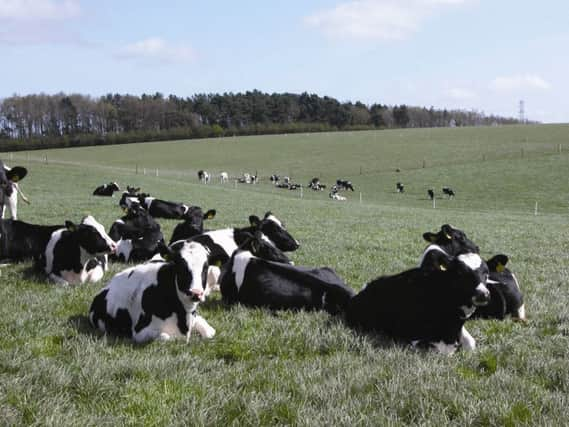Vigilance urged as Bluetongue is found in England


The infected cattle entered the UK in early September and the virus was detected during routine post-movement testing.
Calling for increased vigilance here, Northern Ireland’s Chief Veterinary Officer, Dr. Robert Huey is reminding all herd and flock keepers to source animals responsibly and to be aware of the risks associated with sourcing animals from Continental Europe.
Advertisement
Advertisement
Dr Huey said: “Bluetongue does not pose a threat to human health or food safety, but can have a severe impact on affected farms and to international trade.
“While the UK’s robust disease surveillance procedures have worked, the latest identification of the virus reminds farmers for the need to remain vigilant and highlights the risks of importing animals from disease-affected areas into their herds.
“The main risk to Northern Ireland remains the import of infected animals or germplasm (semen or ova). Farmers should consider the potentially severe consequences of importing animals from, or transiting through, Bluetongue affected countries or zones. The risk is not only to themselves but to our whole industry as trade can be badly affected as a result. It is vital that all of us continue to work hard to keep Bluetongue out.”
Dr Huey added: “Anyone who imports from Bluetongue affected countries or zones faces the possibility that if the imported animals are subsequently found to be infected with bluetongue, then they will be slaughtered and no compensation will be paid.”
The UFU echoed Dr Huey’s call for vigilance.
Advertisement
Advertisement
UFU deputy president, David Brown said: “It is reassuring that the systems in place detected the disease quickly and swift action was taken. But it is a reminder to all livestock keepers of the importance of responsibly sourcing animals and to be fully aware of the potential risks when importing animals. Farmers should also be aware that they will not be eligible for compensation if an animal they import is found to have Bluetongue.
“Northern Ireland has been Bluetongue free for a number of years and all cattle farmers want to keep it that way. Bluetongue is a notifiable disease and farmers should report any concerns immediately to DAERA,” said Mr Brown.
The Animal and Plant Health Agency (APHA) and the Pirbright Institute identified the disease in the animals when they were brought to North Yorkshire from an assembly centre in Central France, where bluetongue continues to slowly spread.
Bluetongue does not affect people or food safety. The virus is transmitted by midge bites and affects cows, goats, sheep and other camelids such as llamas. It can reduce milk yield and cause infertility and in the most severe cases is fatal for infected animals. The midges are most active between May and October and not all susceptible animals show immediate signs of contracting the virus.
Action is being taken to ensure the risk of spread of the disease is reduced, with movement restrictions at the affected premises. The two cattle were isolated and have been humanely culled.